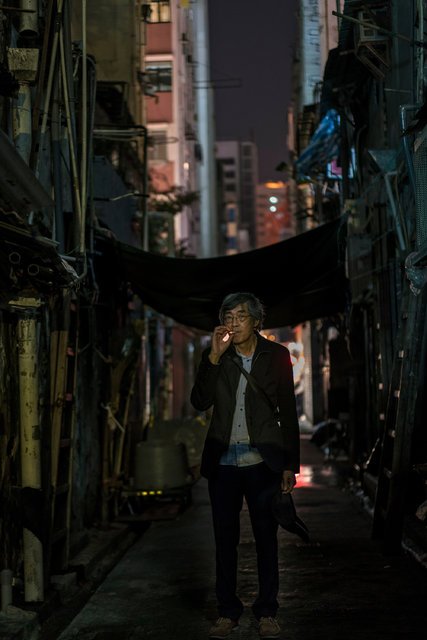Gender Progress in Macho Australia?
Want the Australia Letter by email? Sign up and forward to your friends for heaps of global coverage and provocative Australia insight.
______
When Francesca Donner, director of The New York Times Gender Initiative, arrived in Australia a few weeks ago, she was almost immediately swept up in the wave of #MeToo and news media activities.
In addition to public panels on the #MeToo movement, there were conferences, university discussions and a dinner with young female New York Times readers to talk about our coverage.
Everyone, it seemed, had something to say about #MeToo.
On her way back to New York, Francesca jotted down a few impressions about Australia’s gender movement and how it compares with what’s happening in the United States.
Advertisement
Continue reading the main story
Her thoughts raised as many questions as they answered, and we hope you’ll share your insights as we unpack the issue.
Continue reading the main story
Notebook from Sydney
Because I’m director of the New York Times Gender Initiative, many people I met on my travels wanted to talk me about women and Trump and women and sexual harassment and women and Harvey and women and the workplace and women and women and women.
But they also had a few things to share, too.
The rumblings from women and people in their 20s and 30s began almost at once:
“Australian politics is a boys’ club. The journalists here don’t cover politicians as aggressively as they do in the U.S. Exhibit A (and B and C and D): Barnaby Joyce!”
“And the press! The press! There are so few publications we identify with! Most young people just turn away and shrug.”
“And the defamation laws! It’s almost impossible for the press to cover sexual harassment. Meanwhile, sexual harassment is rife in universities, at workplaces and on and on!”
And yet.
The Sydney Opera House was hosting a day all about women called “All About Women.” Attendees who were mostly women (and a few odd men out) turned out in the thousands. The festival aired around the country on local TV stations. People tuned in.
And yet.
The ABC devoted episodes to International Women’s Day and two ABC national radio stations (Fran Kelly and Richard Glover) invited me on to talk Harvey Weinstein and, you guessed it, women.
Newsletter Sign Up
Continue reading the main story
Gender Letter
Coming soon: A newsletter on women, gender and society.
Please verify you're not a robot by clicking the box.
Invalid email address. Please re-enter.
You must select a newsletter to subscribe to.
Sign Up You agree to receive occasional updates and special offers for The New York Times's products and services.
Thank you for subscribing.
An error has occurred. Please try again later.
You are already subscribed to this email.
View all New York Times newsletters.
- Manage Email Preferences
- Not you?
- Privacy Policy
- Opt out or contact us anytime
And yet.
Gay marriage had been recently legalized. And the city of Sydney would pay homage to the passing of the law at its 40th Anniversary Mardi Gras celebrations.
Advertisement
Continue reading the main story
And yet.
Barnaby Joyce, the former deputy prime minister, a champion of family values, who had fathered a child with a staff member who was not his wife, and accepted a rent-free townhouse from a millionaire politician, had stepped down from his post.
On the surface it looked like progress but underneath, was it?
It got me thinking: What should women (and others) in Australia realistically expect from a gender movement? Are hopes pinned too high? Or do expectations not go far enough?
So here are my questions for you, Australia: How do you think the movement in Australia compares with the wave of accountability sweeping the rest of the world?
And what does gender progress in a macho country like Australia look like, anyway?
Tell us what you what you think. Send feedback to nytaustralia@nytimes.com or join us in our Facebook group and we’ll feature some of your comments in next week’s newsletter.
Now let’s catch up with news of the week, and what to watch on Netflix on April.
______
Hong Kong’s Missing Booksellers

The Chinese government has long sought to shape and control information, but the scope and intensity of the Communist Party’s censoring effort has intensified and Hong Kong booksellers like Lam Wing-kee are the ones paying the price.
“I never expected anything like this, just as a poor man never dreams of striking it rich overnight,” Mr. Lam said.
______
A Prodigious Struggle

Sometimes the most memorable stories are those of a single individual who hit a fork in the road, and took off in a surprising direction.
This is one of those stories capturing the life of a violin prodigy, who left the music behind, almost.
Advertisement
Continue reading the main story
______
Australia This Week

News and Features
• Australians Are the World’s Biggest Gambling Losers, and Some Seek Action: The average Australian adult loses around $900 to gambling each year — more than double the rate of Americans — and electronic gaming machines are getting the blame.
• An International Final Four: Which Country Handles Student Debt Best? In America, college student loan defaults are a really big problem. In Australia? No worries.
• No Hat, No Play: It’s strange the things you miss when you move away.
• Momofuku Seiobo Champions Caribbean Food With Australia’s Bounty: Paul Carmichael, the chef, delivers a profoundly pleasurable experience at the Sydney location of David Chang’s restaurant group.
Newsletter Sign Up
Continue reading the main story
Subscribe to the Australia Letter Newsletter
Damien Cave, our new Australia bureau chief, shares insights on global news, local recommendations and feedback from readers in this weekly newsletter.
Please verify you're not a robot by clicking the box.
Invalid email address. Please re-enter.
You must select a newsletter to subscribe to.
Sign Up You agree to receive occasional updates and special offers for The New York Times's products and services.
Thank you for subscribing.
An error has occurred. Please try again later.
You are already subscribed to this email.
View all New York Times newsletters.
- See Sample
- Manage Email Preferences
- Not you?
- Privacy Policy
- Opt out or contact us anytime
• South Africa Says Australia Retracted Claim of ‘Persecuted’ White Farmers: Australia has disavowed its home minister’s view that white farmers needed refuge in a “civilized country,” South Africa’s top diplomat says.
Sports
• A Hero of Australian Surfing Paddles Out One Last Time: Mick Fanning, a three-time world champion whose list of accomplishments includes punching a great white shark, is preparing his exit from pro surfing.
• Cricket Hero Breaks Down in Tears on TV Over Cheating: A cheating scandal over a plot by Australia’s team captain has seized the cricket world and turned into a national embarrassment.
• Australian Cricket Has Its Own Deflategate, and a Nation Reels: Steve Smith, one of the country’s most revered sportsmen, admits his role in a ball-tampering scheme, prompting national discussion and soul-searching.
• At the Commonwealth Games, Competing for Medals and Relevance: The Games will soon descend onto the Gold Coast’s beaches, bringing an array of the world’s best athletes, and nagging questions of relevance, competitiveness and economic impact.
Advertisement
Continue reading the main story
• What to Do in Australia’s Gold Coast: There is no shortage of bland but familiar luxury. If you dig a little, though, there is a lot more to the city than its glittery facade.
______
Opinion | Selections

Don’t Fix Facebook. Replace It. Tim Wu argues that in the wake of Facebook’s latest scandal, we need better options that are designed to protect our privacy.
The Autocrats’ Playbook. Michelle Goldberg says you don’t have to love Amazon to see the risk of Donald Trump’s threats against the company.
How to Talk About ‘Race’ and Genetics. A much-discussed Sunday Review essay by David Reich asks: How should scientists handle the eventuality that for a few traits, average differences among populations will be discovered?
______
… And We Recommend
Here’s our monthly guide to what’s on Netflix in Australia, which always seems to be popular with our readers and subscribers.
My personal pick: “The Lobster.” If I even tried to explain it, I would fail miserably — but it’s definitely a memorable film. It’s about love. And dictatorship. Maybe.
Here’s a New York Times review to give us all a hand.
Want more Australia coverage and discussion? Join us in our Facebook group, and start your day with the Australian Morning Briefing. Or better yet, just subscribe!
Continue reading the main story Read the Original Article




























